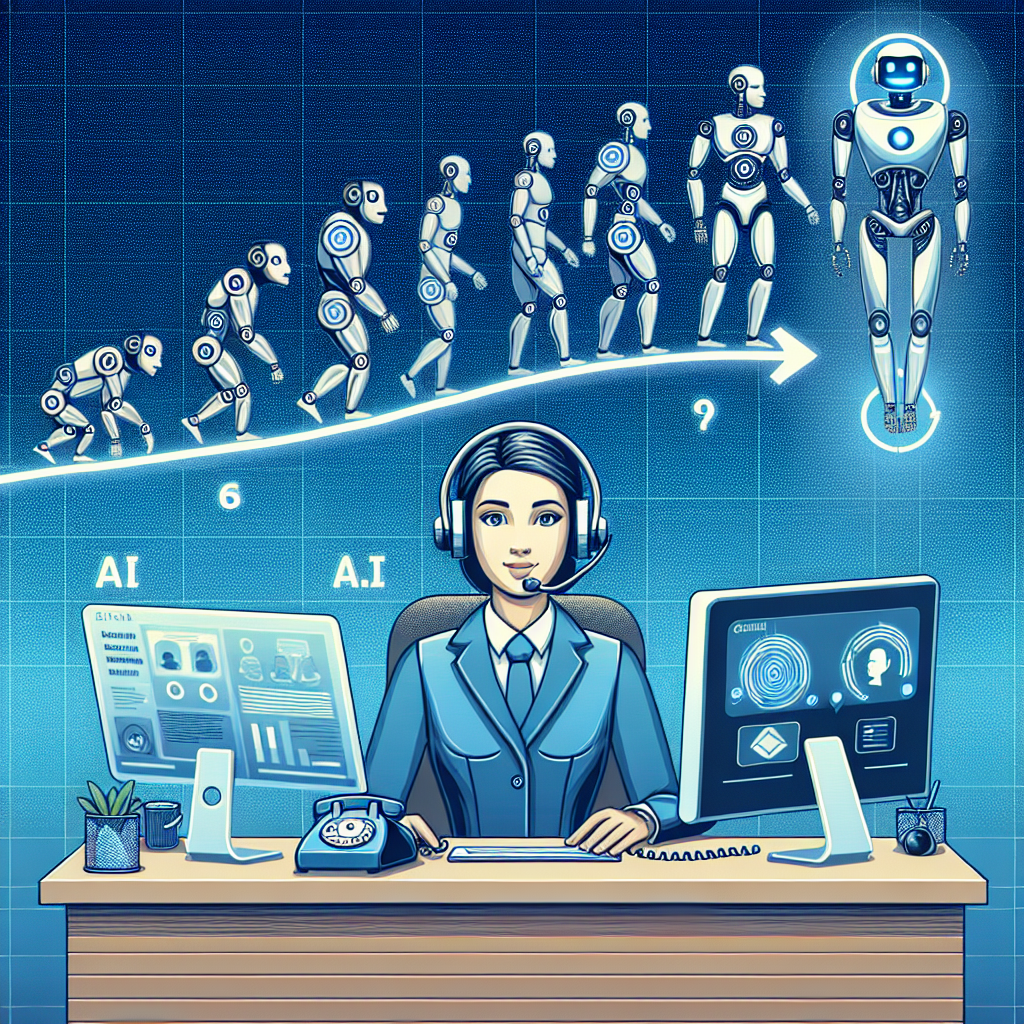In today’s fast-paced and technology-driven world, businesses are constantly looking for ways to improve their customer service interactions. One of the most innovative solutions to emerge in recent years is AI-powered virtual assistants. These intelligent systems are revolutionizing the way companies engage with their customers by providing personalized, efficient, and round-the-clock support.
AI-powered virtual assistants, also known as chatbots or conversational agents, use artificial intelligence and natural language processing to understand and respond to customer queries in real-time. These virtual assistants can be integrated into websites, mobile apps, messaging platforms, and social media channels, allowing businesses to engage with customers across multiple touchpoints.
The benefits of AI-powered virtual assistants for customer service interactions are numerous. These intelligent systems are available 24/7, providing customers with instant support whenever they need it. This can significantly reduce response times and improve customer satisfaction levels. Additionally, virtual assistants can handle a high volume of inquiries simultaneously, freeing up human agents to focus on more complex issues that require human intervention.
AI-powered virtual assistants are also highly scalable, as they can be easily trained and updated to handle new tasks and information. This makes them an ideal solution for businesses that experience seasonal fluctuations in customer inquiries or rapid growth in their customer base. Moreover, virtual assistants can provide consistent and accurate responses to customer queries, ensuring a high level of service quality and reducing the risk of human error.
Another key advantage of AI-powered virtual assistants is their ability to personalize interactions with customers. These intelligent systems can analyze customer data, preferences, and past interactions to provide tailored recommendations, offers, and support. By leveraging this personalized approach, businesses can enhance customer engagement, loyalty, and retention.
Furthermore, AI-powered virtual assistants can automate repetitive and mundane tasks, such as answering frequently asked questions, processing orders, scheduling appointments, and providing basic troubleshooting assistance. This not only improves operational efficiency but also allows human agents to focus on more strategic and value-added activities that require human creativity and empathy.
In addition to improving customer service interactions, AI-powered virtual assistants can also generate valuable insights for businesses. These intelligent systems can analyze customer interactions, sentiment, and behavior to identify trends, patterns, and opportunities for improvement. By leveraging this data-driven approach, businesses can make informed decisions, optimize their customer service strategies, and enhance their overall customer experience.
As the adoption of AI-powered virtual assistants continues to grow, it is essential for businesses to consider the following best practices to maximize the benefits of these intelligent systems:
1. Define clear objectives: Before implementing an AI-powered virtual assistant, businesses should clearly define their objectives, target audience, use cases, and success metrics. This will help ensure that the virtual assistant aligns with the business goals and delivers tangible results.
2. Provide training and supervision: While AI-powered virtual assistants are designed to be autonomous, they still require training, supervision, and ongoing monitoring to ensure optimal performance. Businesses should invest in training their virtual assistants, updating their knowledge base, and monitoring their interactions to identify areas for improvement.
3. Integrate with existing systems: To maximize the efficiency and effectiveness of AI-powered virtual assistants, businesses should integrate them with their existing systems, such as CRM, ERP, and knowledge base. This will enable seamless data exchange, personalized recommendations, and streamlined workflows across the organization.
4. Ensure data privacy and security: As virtual assistants handle sensitive customer data, businesses must prioritize data privacy and security. They should implement robust security measures, encryption protocols, and compliance standards to protect customer information and build trust with their customers.
5. Foster human-machine collaboration: While AI-powered virtual assistants can automate routine tasks and improve operational efficiency, they should not replace human agents entirely. Businesses should foster collaboration between virtual assistants and human agents to provide a seamless and personalized customer experience that combines the best of both worlds.
FAQs:
1. What is an AI-powered virtual assistant?
An AI-powered virtual assistant is an intelligent system that uses artificial intelligence and natural language processing to understand and respond to customer queries in real-time. These virtual assistants can be integrated into websites, mobile apps, messaging platforms, and social media channels to provide personalized, efficient, and round-the-clock support to customers.
2. How does an AI-powered virtual assistant work?
AI-powered virtual assistants work by analyzing customer queries, extracting relevant information, and providing accurate responses in natural language. These intelligent systems use machine learning algorithms to continuously learn from customer interactions, improve their knowledge base, and enhance their performance over time.
3. What are the benefits of using AI-powered virtual assistants for customer service interactions?
The benefits of using AI-powered virtual assistants for customer service interactions include 24/7 availability, instant support, high scalability, personalized interactions, automation of repetitive tasks, generation of valuable insights, and improved operational efficiency. These intelligent systems can enhance customer satisfaction levels, optimize service quality, and drive business growth.
4. How can businesses leverage AI-powered virtual assistants to improve their customer service interactions?
Businesses can leverage AI-powered virtual assistants to improve their customer service interactions by defining clear objectives, providing training and supervision, integrating with existing systems, ensuring data privacy and security, and fostering human-machine collaboration. By following these best practices, businesses can maximize the benefits of AI-powered virtual assistants and deliver a superior customer experience.
In conclusion, AI-powered virtual assistants are the future of customer service interactions, enabling businesses to engage with their customers in a personalized, efficient, and scalable manner. By leveraging the capabilities of these intelligent systems, businesses can enhance customer satisfaction levels, optimize operational efficiency, and drive business growth in today’s competitive marketplace.

